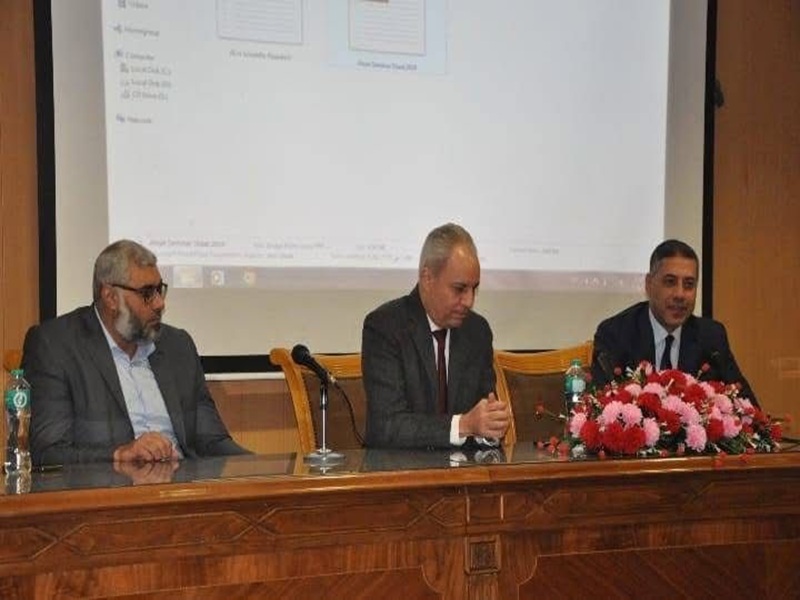The Faculty of Al-Alsun discusses the use of AI tools in scientific research between Supporting Researchers and Usage Guidelines
The Graduate Studies and Research Sector at the Faculty of Al-Alsun, Ain Shams University, organized a seminar titled "Artificial Intelligence Tools in Scientific Research: Supporting Researchers and Usage Guidelines." The event was held under the patronage of Prof. Mohamed Diaa Zain El-Abedeen, President of the University; Prof. Ghada Farouk, Vice President for Community Service and Environmental Development Affairs; and Prof. Salwa Rashad, Dean of the Faculty. It was supervised by Prof. Ashraf Attia, Vice Dean for Graduate Studies and Research Affairs. The seminar featured lectures by Prof. Amr Shaat, Vice Dean of the Faculty of Engineering for Graduate Studies and Research Affairs, and Associate Prof. Dr. Mohamed Kaheel, Assistant Professor at the Faculty of Engineering.
In his speech, Prof. Amr Shaat, Vice Dean of the Faculty of Engineering for Graduate Studies and Research Affairs, emphasized that artificial intelligence is witnessing significant advancements today, amidst widespread concerns about its applications. He stressed the importance of overcoming fears about AI threatening our professional future and urged openness towards it, treating it as a new technological advancement similar to previous technological applications.
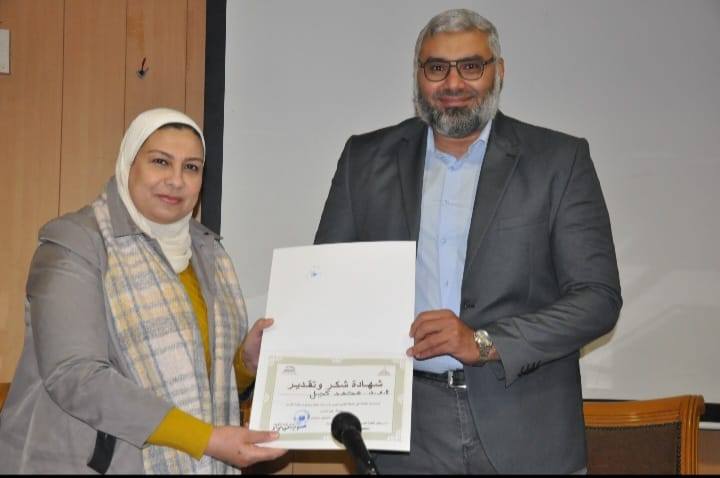 |
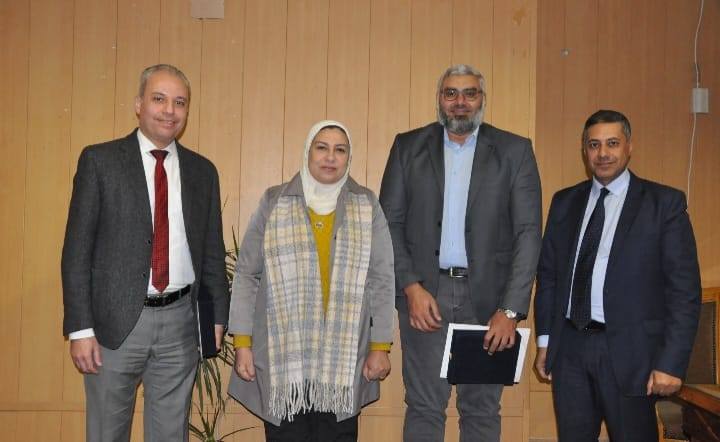 |
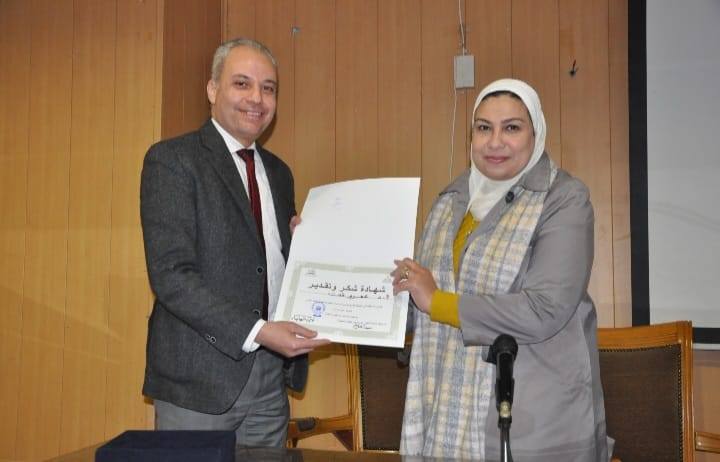 |
||
He pointed out the need to change teaching methods to incorporate new approaches that integrate AI applications into the educational process. He also emphasized the necessity for faculty members to embrace the use of these tools.
Prof. Shaat further noted that the Egyptian government has initiated legal frameworks since 2023 to regulate the use of artificial intelligence and mitigate its misuse.
He emphasized the importance of exercising caution when interacting with artificial intelligence, particularly in providing it with information or accepting its outputs as absolute truths. In scientific communities, researchers must handle information sourced from AI with great care, always citing the source in their research to avoid reproducing results obtained by another researcher and facing accusations of academic plagiarism.
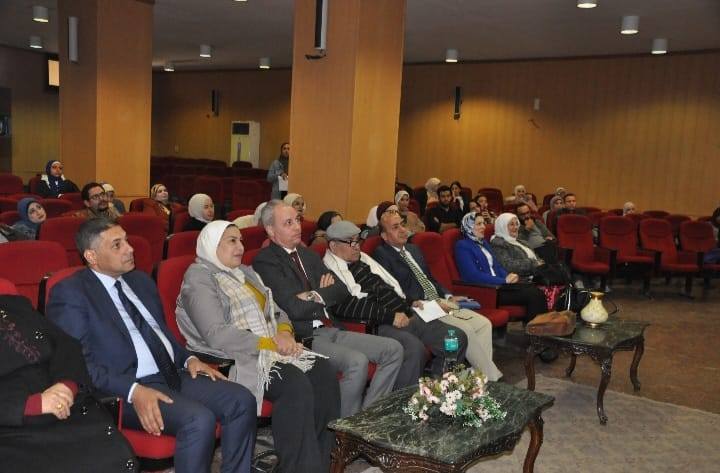 |
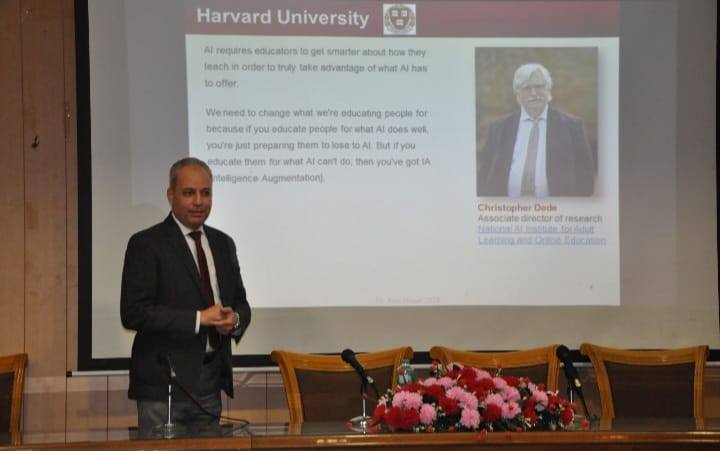 |
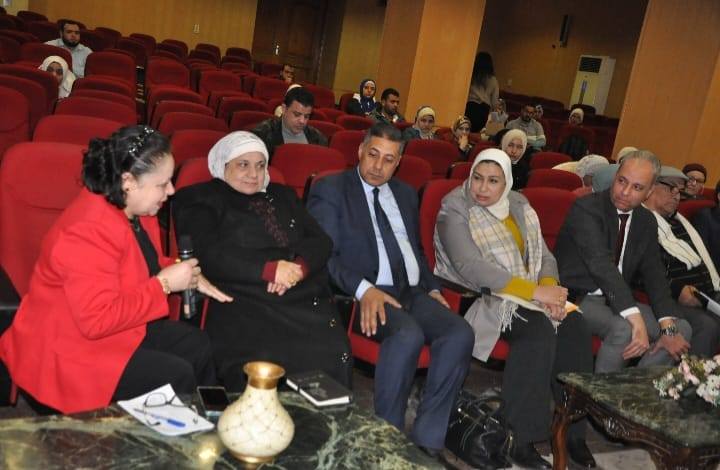 |
||
Meanwhile, Associate Prof. Mohamed Kaheel, Assistant Professor at the Faculty of Engineering, showcased various AI tools and their differences. He highlighted that AI serves as an aid in scientific research, helping to summarize prior studies and pinpoint key aspects for researchers to focus on in their work.
He also explained the steps researchers should follow using an AI search engine to arrive at precise and beneficial information for their studies.
In her intervention during the seminar, Prof. Salwa Rashad, Dean of the Faculty, emphasized the importance of the seminar's topic and the need to raise students' awareness about the correct use of AI tools. She stressed the necessity of selecting the data and information needed while maintaining the ability to critically analyze this data and draw conclusions.
In his remarks, Prof. Ashraf Attia, Vice Dean for Graduate Studies and Research Affairs, highlighted that the use of artificial intelligence in scientific research represents a significant shift from traditional research methodologies. He noted that AI enhances researchers' capabilities by enabling rapid analysis of vast amounts of data and information, meeting their needs for collecting and categorizing large datasets. He asserted that integrating AI tools in research has become inevitable and requires the establishment of regulations and standards for their proper use.
The seminar concluded with extensive discussions among attendees, including faculty members, teaching assistants, and postgraduate students, on how to utilize AI tools in scientific research while avoiding their potential risks.


.svg)

